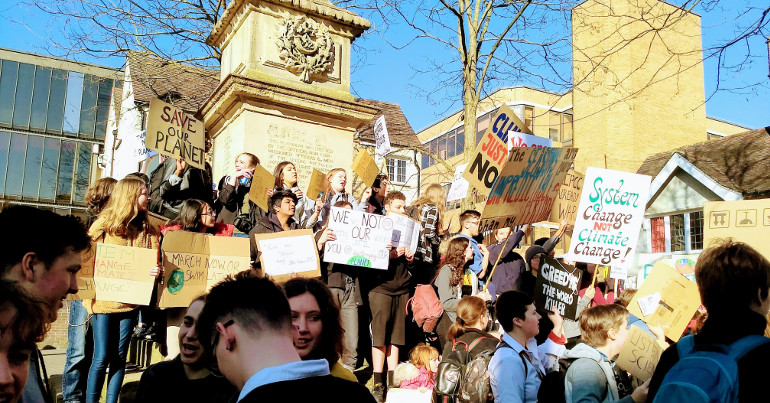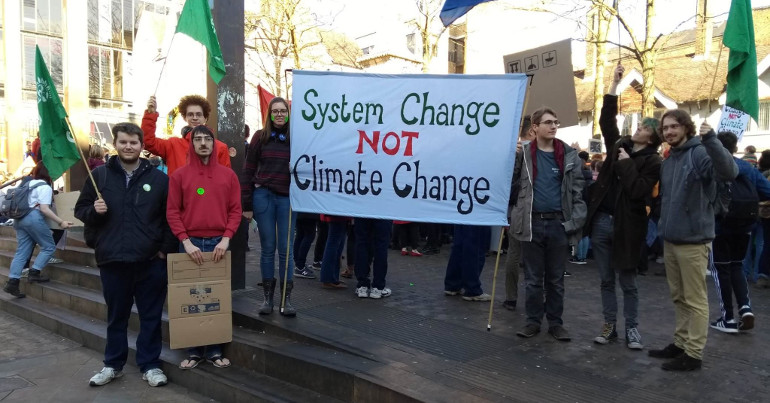Schoolchildren strike for the climate

On Friday 15 February the UK held its first ever youth climate strikes. Thousands of children were in attendance.
In over 60 cities across the UK, young people left their lessons and took to the streets. The largest crowd was in London’s Parliament Square.
The youth climate strike movement is inspired by Sweden’s Greta Thunberg, who began refusing to attend school in August 2018. Since then, the movement has spread beyond Sweden to Ireland, Germany, Australia and more. February 15 marked the first nationwide strike in the UK, with further actions planned in the near future.
The UK Student Climate Network (UKSCN), one of the groups organising the strikes, has laid out the strikers’ demands. These include declaring a climate emergency, curriculum reform for further environmental education, lowering the voting age to 16, and that the government communicates the severity of our ecological crisis. If these demands are not met, then the UKSCN have promised to continue the strikes every school Friday.
A focus on Oxford

The Oxford strike, attended by Bright Green, had over 1,000 schoolchildren in attendance. Speeches were delivered by George Monbiot, the environmental writer, and Layla Moran, the Liberal Democrat MP for Oxford West and Abingdon.
Alongside them, for the majority of the three-hour strike period, the young activists themselves spoke to the crowded square. The majority of the students were in their mid-teens, but the crowd also included some from primary school. Some were even as young as four.
Ella Mann, an 18-year-old sixth form student, helped organise one of the strikes and suggests that young people have “been ignored for too long.” She believes climate change is an important issue for young people as they:
have contributed the least to climate change but are going to be the most effected by it.
There has been backlash, with the Prime Minister’s spokesperson emphasising that:
disruption increases teacher’s workloads and wastes lesson time.
But activists like Ella remain positive stressing that “headteachers have been incredibly supportive.” When asked if she has received or seen any negative comments about the strike Ella brushed it aside:
All the backlash I’ve seen is in the comment section of the Daily Mail.
Many schools in the country break up for half term in the coming weeks. The longevity and success of these school strikes will depend in part on how well attended they are in March when further strikes are planned.




Ella Mann suggests that young people have “been ignored for too long.” I would suggest that too many young people have been silent for too long and therefore welcome this strike wholeheartedly. I trust that this is a beginning rather than the culmination of the effort to save our civilisation (or as much of it as can be saved and deserves saving). Does the irony of the PM’s spokesperson’s statement that ‘disruption increases teacher’s workloads and wastes lesson time’ need pointing out, coming as it does from the past masters of prevarication? The resident of Downing Street has nothing to teach young people and much to learn from them.